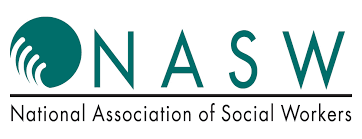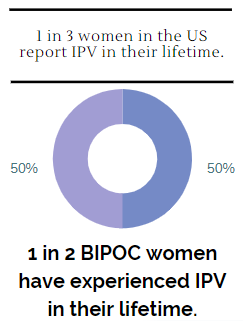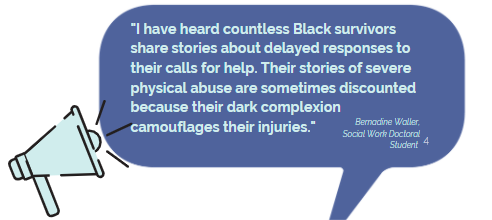
Antiracism and IPV
Antiracism & Interpersonal Violence
Message from the Director
Violence, murder, and oppression are not acceptable. Racism is not acceptable. As scholars who are committed to the eradication of gender-based violence (GBV), we must center the intersections of gender with other marginalized identities.
As a community, we continue to condemn the violence against Black and Indigenous communities. We stand in solidarity with our Black faculty, staff and students and affirm that Black Lives Matter.
We also focus renewed emphasis on eradicating racist violence against Asians and Asian Americans. Anti-Asian violence is not new and has been increasing, culminating recently in the horrific murders of 8 people in Atlanta.
We mobilize now with a renewed sense of urgency to advance racial justice in our local communities and the nation. While the issues arising in the summer of 2020 drew specific and warranted attention to racist violence against Black men and women, the United States has a history of racial injustices toward Indigenous people, Asian immigrants and Asian Americans, and migrant communities. We recognize that we must examine ourselves with a sense of immediacy, understanding that it is our responsibility to identify and eradicate any policies or practices that have created inequities due to our action (or inaction) for groups that face disadvantage as a result of systemic racism.
I am hopeful that we can harness our collective anger and sadness to focus our GBV work on dismantling the racist policies and practices that devalue the lives, bodies, and spirits of Black, Indigenous, and People of Color. The issues of GBV are not separate from racism and there is no success within gender equity if it does not simultaneously work toward racial justice. We approach this with different histories and from various positionalities, both as individuals and as scholars; I believe that this affords us an opportunity to work together to intentionally build an anti-racist practice focused on condemning all forms of violence and oppression. To this end, the resources complied below are intended to elucidate the intersections between GBV and antiracism work and to provide a starting place for the individual and collective work that is needed to move toward a more just and equitable society.
Racism and Intimate Partner Violence
It is important to reflect on how violence, specifically intimate partner violence, is connected to racism and oppression. Intimate partner violence permeates all socioeconomic levels, gender, ethnicity, and racial backgrounds. However, people of color experience disproportionate rates of violence and the movement itself to end sexual and domestic violence replicates oppression, power imbalances, and racism within mainstream and other organizations. The barriers to those with poor education, limited job resources, language barriers, or fear of deportation make it difficult for people to find help and support services. Black people may fear calling their partner due to the danger of police brutality and racism in the criminal justice system. Dr. Ijeomma Ogbonnaya’s work highlights the disparities of police violence for Black, Indigenous, and Latina Women. Individuals from different races, classes and backgrounds all respond to intimate partner violence in different ways. Domestic violence prevention practices that are inclusive and intersectional will help benefit all victims.

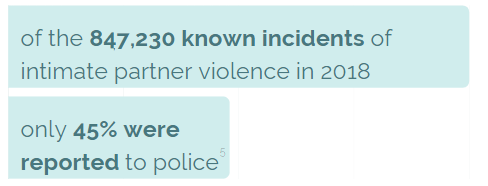
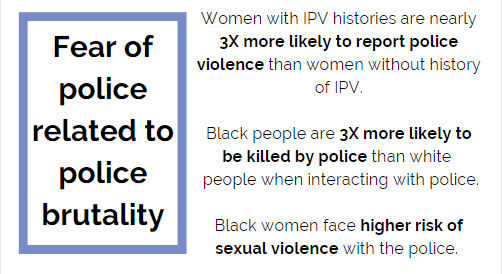
Additional articles
Understanding Racism and its Connection to Sexual and Domestic Violence
For more information regarding the criminal justice system and IPV
Understanding Anti Racism work
To be effective in Gender-Based Violence work and social work we must be anti-racist. To learn more about what actions you can take within your role as an educator, researcher, or clinician, please visit some of the resources below.
Resources
Anti-racism as Violence Prevention
Antiracist tools
The Arizona Coalition to End Sexual and Domestic Violence has created a resource list of actionable tools for anti-racist work.
Antiracist Syllabi
Diversity Statements for Syllabi Examples fit_checklist (5).doc (310.11 KB)
Radical Healing Syllabi fit_checklist (5).doc (5.5 MB)
Chico State Syllabi Examples fit_checklist (5).doc (21.01 KB)
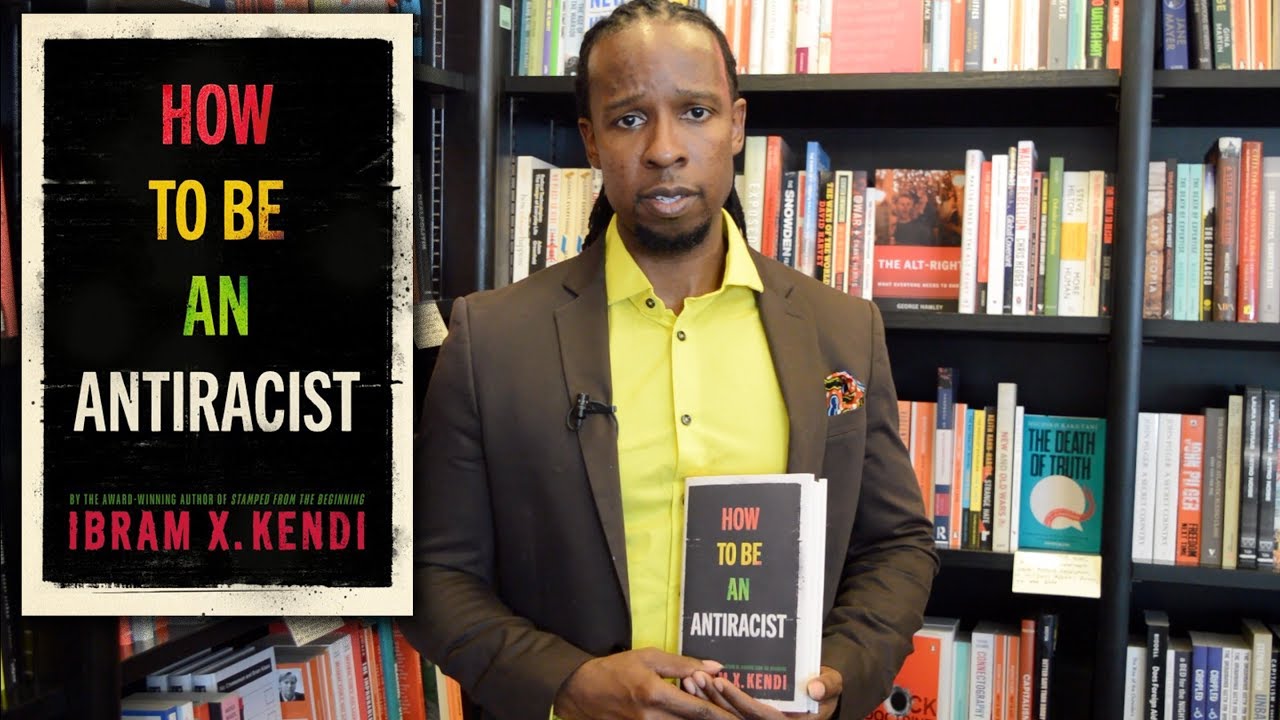
Ibram Kendi, author of the new book "How to Be an Antiracist," argues that neutrality is not an option in the racism struggle—people must take active measures if they wish to end discrimination. In this interview, Kendi sits down with Hari Sreenivasan to discuss how his personal experiences have shaped how he sees prejudice. Click here for the interview.
Reading Lists
https://www.esquire.com/entertainment/books/g32733124/best-books-on-anti-racism/
https://centerracialjustice.org/resources/reading-lists/
https://www.nytimes.com/2019/05/29/books/review/antiracist-reading-list-ibram-x-kendi.html
Intersectionality
We must continue to expand our perspecitves and check our biases when it comes to understanding the intersectionality of lived experiences, privilege, and oppression. To learn more about current conversations regarding intersectionality view the resources below.
Toolkit for tackling personal biases
Personal self-assessment of Anti Bias Behavior
Reading lists
cho_crenshaw_mccall_2013_jtm_highlights_1.pdf
hancock_empirical_intersectionality_a_tale_of_two_approaches_2013_jtm_1.pdf
